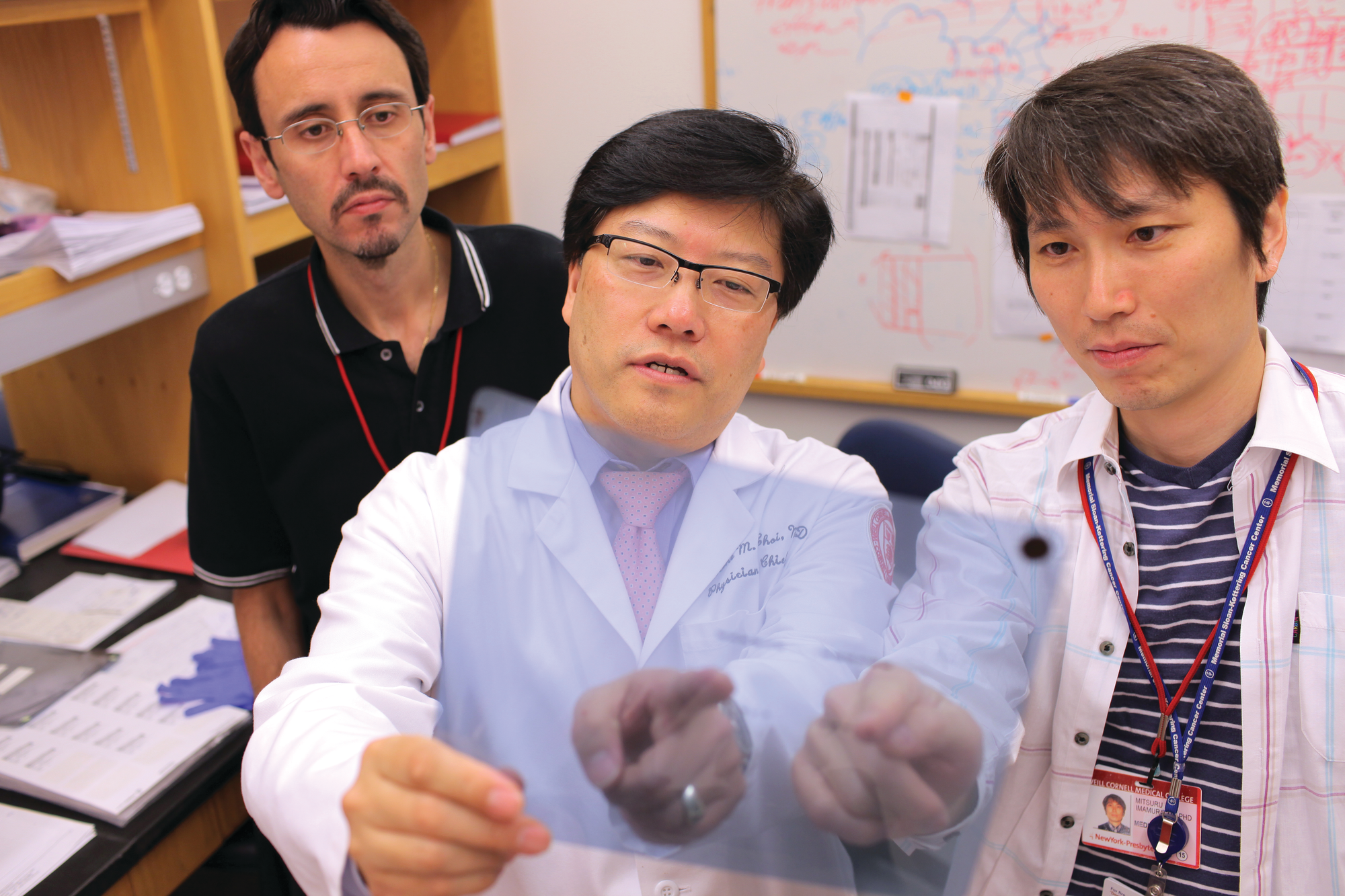Could a process that's normally essential to life be a root cause of COPD?
Known as autophagy, it's a mechanism in which cells conserve energy and nutrients by consuming damaged or unneeded organelles — the tiny structures that perform various functions within each cell. "When people are starving, autophagy is critical," Dr. Choi explains. "But it also regulates inflammation, cell growth and many other processes." For example, in 2010 Dr. Choi and his team reported in Nature Immunology that autophagy confers a potent anti-inflammatory effect in acute inflammatory conditions. "The complexity of this," he notes, "is highlighted by the fact that in some other diseases of the lung, like pulmonary hypertension, autophagy is a good thing."Chronic obstructive pulmonary disease (COPD) kills some 130,000 Americans every year — including, in February, the actor Leonard Nimoy, beloved by millions for playing Mr. Spock on TV's "Star Trek." While the disease — the third-leading cause of death in the United States — is strongly associated with smoking, its underlying causes have never been clear, and effective treatments have proven elusive. "Right now, all you can do is mitigate it," says Dr. Augustine Choi, the Sanford I. Weill Chairman of the Weill Department of Medicine. "There's no cure." But Dr. Choi may have found an important clue to how COPD happens—and surprisingly, it's a process that is normally fundamental to our survival.
But that is not the case in chronic pulmonary disease. Dr. Choi and his team had previously found higher rates of autophagy in the lungs of people with COPD, and they have demonstrated that this leads to cell death that ultimately affects pulmonary function. In a paper published last fall in the Journal of Clinical Investigation, they explained that when cigarette smoke enters the air sacs in a smoker's lungs, it harms their mitochondria, the organelles that serve as cellular power plants. The cells are prompted to destroy their damaged mitochondria, but then they become unstable and are killed off. "The obvious question then is, can we block autophagy with new chemical inhibitors or drugs?" Dr. Choi says. "This has significant therapeutic implications, for sure, but we have to be cautious and systematic about how and when to target the autophagy in COPD."
Autophagy was first described in the 1960s, and for the next few decades it was the province of cell biologists, who studied the process in yeast. It was only within the last 10 to 15 years, Dr. Choi says, that scientists began to investigate autophagy in humans. And since 2008, when his team first published findings about autophagy in lung tissue from COPD patients, other researchers have begun to investigate its role in a host of other human diseases. "We got into the game a bit earlier than most people," Dr. Choi says. "Now you can't pick up a journal without seeing a paper on autophagy. The cancer guys have been doing a lot of autophagy work. Alzheimer's, Parkinson's, infectious disease—I could go on and on." At Weill Cornell Medicine alone, researchers have found links between autophagy and gynecologic cancers, female genital tract infection, pancreatic cancer, metabolic diseases, and kidney failure.

Autophagy investigators: Dr. Augustine Choi (center) with research fellows (left) Dr. Ilias Siempos and Dr. Mitsuru Imamura. Photo credit: John Abbott
Over the years, Dr. Choi has seen attitudes toward COPD shift significantly. It was once considered hopeless, he says, and research funding was limited in part because patients with diseases linked to smoking were not seen sympathetically. But while COPD patients may be haunted by the stereotype of the unrepentant lifelong smoker, the disease can develop decades after people quit, as in Nimoy's case. It can also strike non-smokers, for reasons that are still unknown. "The incidence of COPD not related to cigarette smoking is increasing," Dr. Choi says "Whether it's pollution, particulate matter in the environment, infections or a virus— we don't know." And that's just one of the many questions Dr. Choi and his colleagues are working to answer. They are also looking into how protective mechanisms in the lungs could offset autophagy, and they're trying to find a way to detect COPD with a simple blood test rather than a CAT scan.
Among the Weill Cornell Medicine researchers working on autophagy is Dr. Choi's wife, Dr. Mary Choi. An associate professor of medicine in the Division of Nephrology and Hypertension, she is leading investigations into its role in diseases of the kidney. She has found that impaired autophagy could lead to kidney fibrosis, a common feature in kidney failure and diabetic nephropathy — which means that therapies targeting autophagy could potentially restore kidney function. The couple came to Weill Cornell Medicine in 2013 from Boston, where both were on the faculty at Harvard Medical School and he was chief of pulmonary and critical care medicine at Brigham and Women's Hospital. There, as at Weill Cornell Medicine, patient care was a major aspect of his work. "Seeing patients gives you focus, and it helps you identify the questions that we need to address," Dr. Choi says. "Patients are what it's all about — you're trying to make an impact on human disease."
— Amy Crawford
This story first appeared in Weill Cornell Medicine, Vol. 14, No.2.

